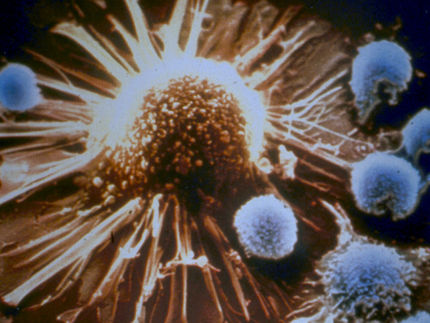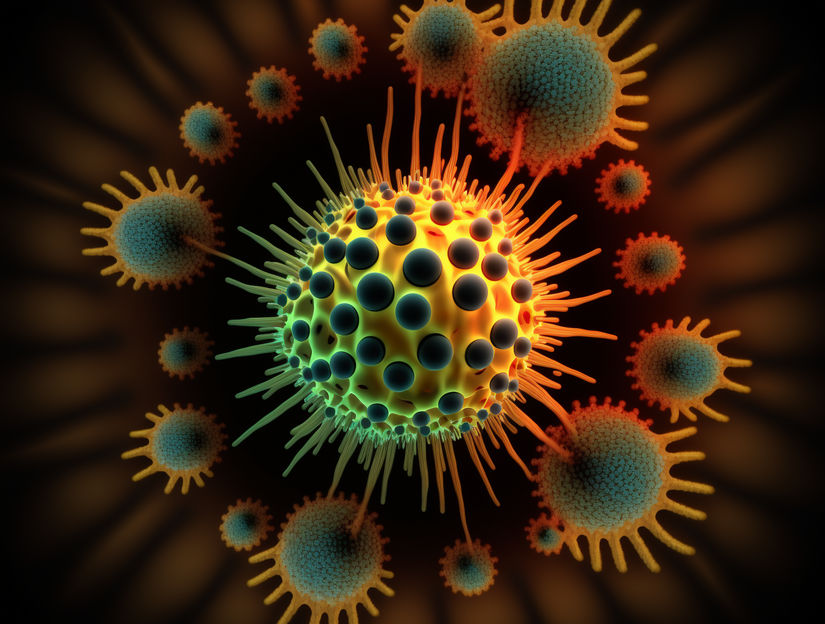Increasing the effectiveness of immunotherapy against skin cancer
Efficacy of immune checkpoint inhibitors can be improved by the simultaneous administration of IL-32
Researchers at the University of Bern have discovered a mechanism in the body’s own immune system which is responsible for the maturation and activation of immune cells. In the fight against skin cancer, the results have the potential to help immunotherapies succeed, even in patients for whom they have so far been ineffective.

Symbolic image
PDPics, pixabay.com
The melanoma is a malignant tumor of the pigment cells. If diagnosed early, the tumor can be removed completely – and the chances of recovery are good. But in later stages, when the tumor has already spread or formed metastases in other parts of the body, the prospects become worse for those affected.
No effect for a good half of patients
The so-called immune checkpoint inhibitors, which have been approved in the last ten years, are a ray of hope – and the medical profession has achieved spectacular treatment successes with these medicines. However, in a good half of all patients these therapies show no benficial effect. But now, the work of the research group led by Mirjam Schenk from the Institute of Pathology at the University of Bern shows a promising way of increasing the effectiveness of the treatment and helping many more patients than before.
In collaboration with researchers from the USA, the team led by Schenk has uncovered the role of a signal molecule which the cells of the body's immune system use to coordinate their functions. The molecule is called Interleukin-32, IL-32 for short. In the complex interplay of immune cells within and in the immediate area around a tumor, it soon revealed a double effect. "It hits two birds with one stone," says Schenk.
Making tumors attackable again
On one hand, IL-32 leads to the maturation and activation of so-called dendritic cells which are responsible for the recognition of foreign structures. In addition, IL-32 also triggers macrophages or scavenger cells to secrete attractants for the T cells. This is how these immune cells find their way to the tumor, where they can eliminate the cancer cells.
Tumors have to escape detection by the immune system for them to be able to grow. This is why they settle in immunosuppressed environments which are hospitable for cancer growth. Clearly, IL-32 is capable of making these protective niches of the tumor accessible to the immune system again. With trials on mice, the researchers led by Schenk have proven that the efficacy of immune checkpoint inhibitors can be improved by the simultaneous administration of IL-32.
Combination treatment a "promising therapeutic strategy"
In animal models, the additionally administered IL-32 did not cause any side effects. Whether these results can be transferred to humans remains to be seen, says Schenk. However, a further argument certainly speaks for the fact that the combination treatment represents a “promising strategy for treatment”, as the researchers led by Schenk write in their recently published specialist article in the «The Journal of Clinical Investigation insight». As they have been able to prove with bioinformatic analyses, melanoma patients with more IL-32 activity have an improved life expectancy, from a statistical point of view.
Original publication
Most read news
Original publication
Gruber T, Kremenovic M, Sadozai H, Rombini N, Baeriswyl L, Maibach F, Modlin RL, Gilliet M, von Werdt D, Hunger RE, Seyed Jafari SM, Parisi G, Abril-Rodriguez G, Ribas A, and Schenk M; "IL-32γ potentiates tumor immunity in melanoma"; JCI Insight. 2020
Topics
Organizations
Other news from the department science

Get the life science industry in your inbox
By submitting this form you agree that LUMITOS AG will send you the newsletter(s) selected above by email. Your data will not be passed on to third parties. Your data will be stored and processed in accordance with our data protection regulations. LUMITOS may contact you by email for the purpose of advertising or market and opinion surveys. You can revoke your consent at any time without giving reasons to LUMITOS AG, Ernst-Augustin-Str. 2, 12489 Berlin, Germany or by e-mail at revoke@lumitos.com with effect for the future. In addition, each email contains a link to unsubscribe from the corresponding newsletter.





















































